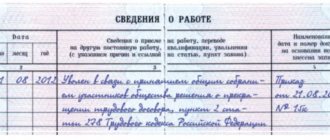Legal uncertainty
The main problem is that the legislator does not clearly and specifically regulate the procedure for determining and establishing the terms of office of a director. The Federal Laws on Open and Closed Joint Stock Companies contain only general wording. From all the provisions of these acts, only two specific conclusions can be drawn:
- the terms of office of the general director must be specified in the company's Charter;
- the same information must be duplicated in the employment contract.
The Federal Law on JSC mentions that the period may be indicated in other internal documents of the organization - for example, in the decision on appointment to a position. Since the term of office in the employment contract is determined on the basis of this decision (theoretically), it is better not to neglect this possibility.
The decision to appoint to a position is, in turn, based on the Charter. This is such a confusing normative relationship.
Term for which the General Director is appointed and elected, and responsibilities
The term of appointment of the General Director is determined by the LLC Charter. If the Charter does not provide for such a period, then the period is determined in the Order on the appointment of a director, or he can be elected with the wording “for an indefinite period.”
Order on the appointment of the general director of the LLC
is drawn up according to the T-1 form established by law and the following entry is made in the work book:
— No., date, Limited Liability Company “Company Name”.
— Appointed to the position of General Director.
— In the column the name of the document: Protocol No.... dated..., Order No.... dated...
Next, fill out the employee’s personal card in form T-2.
After this, the General Director of the LLC can be considered registered for the position.
When filling out the work book of the General Director in the fourth column, you can make a reference to the fact that the General Director was hired by decision of the general meeting of participants (other decision of the employer), or by order of appointment of the director
.
What should I do?
So, according to the law, the terms of office of the director of an LLC or JSC (NAO) must be fixed in two documents at once - the Charter and the employment contract. It is necessary to remember and take this nuance into account. Formulations like “powers are established for an indefinite period” are unacceptable - in civil and labor legislation there is no indefinite period, this is an incorrect definition. There are several other options that are more acceptable from a legal point of view.
- The easiest way is to indicate in the Charter a certain number of years during which the general director will lead the company. For example, you can elect a director for 5 years and specify exactly this term.
- You can designate a specific event until the occurrence of which the director will hold his post. This event cannot be hypothetical, it must necessarily happen - for example, the general reaching retirement age.
You can also indicate a specific date before which the director will be vested with the appropriate powers - for example, until July 1, 2021. And some founders write in the Charter that the director will be a director for such and such a year (for example, the same 2016). Both of these options are acceptable, but not very convenient in practice. When the specified period ends, the Charter will have to be adjusted to include data on the new period of authority. The procedure for changing the Charter, as we remember, is quite long and tedious, so it is better not to create delayed problems for yourself.
The period established in the employment contract must correspond to that specified in the Charter. By the way, the contract cannot specify a period of more than 5 years (accordingly, take this into account when drawing up the Charter).
What to do if the term of office of the director is not specified in the Charter? Ideally, an appropriate change should be made to this act. In practice, entrepreneurs often neglect this responsibility. However, such a “suspended” state of affairs does not always remain without consequences. If the director has any problems with the state. authorities, everything can end quite sadly both for the general and for all the founders of the company (if there are several of them).
How to fire a director if the share of company participants is the same and one participant is against
In this article we will answer our reader’s question - How to change the general director when a corporate conflict occurs in an LLC, and the organization has two participants with equal shares of 50%.
This question is asked by many founders (participants) of an LLC who find themselves in such a difficult situation. In the case under consideration: the 2nd founder (participant) of the LLC is the general director, whose actions carry out the sale of the property of a legal entity at a reduced price.
This problem is practically insoluble. If two participants in a registered LLC each have 50% of the authorized capital, whose opinions are opposite, then it is almost impossible to change the sole executive body (general director). The winner is only one of the LLC participants who is either the general director himself, or whose sole executive body is his protege.
In order to appoint a new director, a decision must be made on his appointment. But it is impossible to make such a decision if there is opposition between each other, since a majority must vote for the decision, and if there is a tie, the decision is considered not made and the same person who was appointed earlier remains the director.
From practice in corporate conflicts, participants attempted to enter information into the registration body about the unreliability of information about the sole executive body. The reasons were the expiration of the director's term of office and the failure of the LLC participants to make a decision on their extension. This was done based on information received from an interested party - another participant in the LLC. (Form P34002. Statement by the interested party about the unreliability of the information included in the Unified State Register of Legal Entities). But even after making an entry in the Unified State Register of Legal Entities about the unreliability of such information, the courts recognized such actions as unlawful.
In addition, there were attempts to hold the meeting without a second participant. True, if the second participant behaves vigilantly, then holding such a meeting in compliance with the law is not realistic.
Our main recommendation in this case is to try to reach an agreement by mutual consent.
If a compromise is not found, then you should not despair. Still, there is a way to solve this problem. (The truth is quite long and is used under certain conditions).
So. How to fire a director if the share of company participants is the same and one participant is against it?
During negotiations, consider the possibilities of:
- reorganization of a legal entity (reorganization of a company in the form of division);
As a result of division, two or more new legal entities are created on the basis of one legal entity. That is, the result of this form of reorganization is the termination of the activities of the “old” (reorganized) legal entity and the creation of new legal entities.
- withdrawal of one of the LLC participants with subsequent payment of the actual value of the share.
By law, an LLC is obliged to pay a company participant the actual value of his share or part of a share in the authorized capital of the company, or to give him in kind property of the same value within three months from the date the corresponding obligation arises. (unless a different period or procedure for paying the actual value of a share or part of a share is provided for by the company’s charter).
Remember! Withdrawal from the founders (participants) of an LLC is carried out through a notarization. The applicant for changes from August 11, 2020 is not the general director of the LLC, but a notary.
And then we didn’t agree?
Go to court with a corporate dispute.
Conflicts between founders (participants) and directors are within the competence of the arbitration court. The procedure for considering such disputes is regulated by Chapter 28.1 of the Arbitration Procedure Code. Among other things, this chapter covers disputes related to the appointment or election, termination, suspension of powers and liability of persons who are (were) members of the management and control bodies of a legal entity.
In corporate disputes, it is worth noting that there is the possibility of expelling the second participant from the company. (If one participant can be excluded from the LLC, then there will be no problems with changing the general director).
In this case, it is necessary to analyze the violations committed by the second participant, his actions or inactions. So you can demand the convening of an extraordinary general meeting of LLC participants. Put on the agenda of the meeting the issue of conducting an audit, the illegality of the director’s transactions and the termination of his powers. If the second participant systematically fails to attend meetings, then such behavior can be interpreted as making the company’s activities impossible, which may be grounds for expelling the second participant from the LLC.
It is possible to dismiss the general director through the court even if there are documents indicating a violation of the company’s charter and/or the legislation of the Russian Federation. Such reasons may be a violation of the employment contract or the general director making an unreasonable decision. In the latter case, losses caused to the company can be recovered from the general director.
If you have questions related to the creation, registration of changes, termination of activities of legal entities and individual entrepreneurs, you can always contact us. You can contact us through the Telegram application by searching @garant_ooo.
Remember! Registration of a legal entity with equal shares of the founders is a significant pitfall in a corporate dispute. Therefore, think over the text of the Charter in advance and do not exclude the possibility of concluding a memorandum of association when creating an LLC.
If the conflict between the founders of the LLC has been resolved, an article will help make changes - step-by-step instructions for changing the director of the LLC.
@garant_ooo
The term of office of the general director has expired - what next?
At the moment of expiration of the term (specified in the Charter and the employment contract), the powers of the director do not necessarily terminate. A director can and must continue to serve in his or her duties until he or she is re-elected to that position or replaced by another director. This is logical - otherwise the company’s economic activities would immediately stop.
However, the founders of the company have the right to impose on the manager the obligation to immediately “hand over the affairs.” To do this, you need to initially (even at the stage of opening the company) write down the corresponding provision in the Charter. Or you can limit yourself to certain prohibitions - for example, on making transactions on behalf of the company. In fact, the term of office of the director of a NAO or other company in such cases will end, but “not entirely.”
It happens that participants cannot reach an agreement for a long time on the issue of electing a new executive body. This is also not a reason for the final termination of the powers of the former leader. However, in judicial practice there are cases when the court recognizes the expiration of a term as sufficient grounds for complete and immediate termination of powers. They should be considered exceptional, but they are possible.
And yet it’s not that simple. The fact is that the fact that the term of office has expired can cause a lot of inconvenience when interacting with the government. bodies, contractors and other officials. Tax inspectors, for example, may refuse to negotiate with an “overdue” general. The notary will almost certainly not agree to certify his signature on copies of documents and other acts. Accordingly, difficulties may arise with the state registration of any rights, business interaction with counterparties, etc.
In other words, the absence of a decision to elect a new director is not a direct violation of the law, but may complicate the company’s activities.
The term of office of the director must be specified in the charter of the Company
In accordance with paragraph 4 of Article 32 of the LLC Law, the general director is entrusted with the functions of determining and monitoring the current activities of the organization. The manager is obliged to give a report on his actions only to the general meeting, and if the LLC has a board of directors, then to this body. High official status implies a fairly wide range of powers of the general director. Thus, the head of an LLC is authorized to:
- represent the interests of the organization before government agencies or other third parties without a power of attorney;
- enter into transactions and agreements on behalf of the organization, make changes to them and terminate them (a power of attorney is also not required for this);
- issue powers of attorney confirming the right to act on behalf of the organization;
- issue orders according to which company employees are appointed to a position, transferred to another position within the organization, or dismissed;
- encourage and impose disciplinary sanctions on employees;
- perform other actions that are related to the management of the company and, in accordance with the charter, do not fall within the powers of the general meeting or the board of directors (clause 3 of article 40 of the LLC Law).
The procedure for the activities of the general director of an LLC is regulated by the charter of the organization, the provisions of the company’s internal documentation and the employment contract concluded between the organization and the general director (according to paragraph 4 of Article 40 of the LLC Law, the director is a hired employee of the company, therefore an employment contract is concluded between him and the company). The charter of the LLC must contain provisions on the term of office of the general director. According to clause 2 of Article 40 of the LLC Law, the head of the Company can only be an individual who is selected either from among the members of the Company or from third parties. At the same time, the law prohibits the general director from holding the concurrent position of chairman of the board of directors (paragraph 5, paragraph 2, article 32 of the LLC Law). The General Director is elected at the general meeting of the Company's participants. The meeting also decides whether the term of office of the general director will be extended or the powers will be terminated early. According to paragraph 4 of paragraph 2 of the LLC Law, the amount of remuneration and compensation is established at the general meeting. In accordance with paragraph 3, clause 8, article 37 of the LLC Law, such decisions are made by voting. In order for a decision to be considered adopted, it is necessary to obtain a simple majority of votes (except for cases where otherwise provided by the organization’s charter, for example, to make some decisions it is necessary to obtain 100% of the votes or a qualified majority). In accordance with paragraph 3, clause 8, article 37 of the LLC Law, an employment contract must be signed with the manager. The manager signs the contract as an employee. On the part of the organization, the agreement is authorized to be signed by the chairman of the meeting during which the director was elected, or an authorized participant of the meeting. If the general director was appointed by the board of directors, then the employment contract on the part of the LLC is signed by the chairman of the board or another authorized person. Also, these persons are authorized to perform similar actions in cases where it is necessary to increase the term of office of the general director or terminate them early. The order for a manager to take office is issued by the general director himself. If an organization needs to check a counterparty, then the manager needs to confirm authority. For this purpose, a set of documents is provided, which includes: a protocol (or an extract from the protocol), an order for the general director to take office and an extract from the register of legal entities.
Basic recommendations
Let's summarize.
- it is necessary to establish the terms of office of the director in the Charter (not forgetting that the powers cannot be unlimited);
- the best way to do this is to indicate the number of years during which the general director will “rule”;
- It is better to look for another director in advance to avoid problems with officials, lawyers and contractors.
And do not forget that you can dismiss a director before the expiration of his term of office (for good reasons). True, after this it will be necessary to make changes to the charter regarding the change of leadership.









